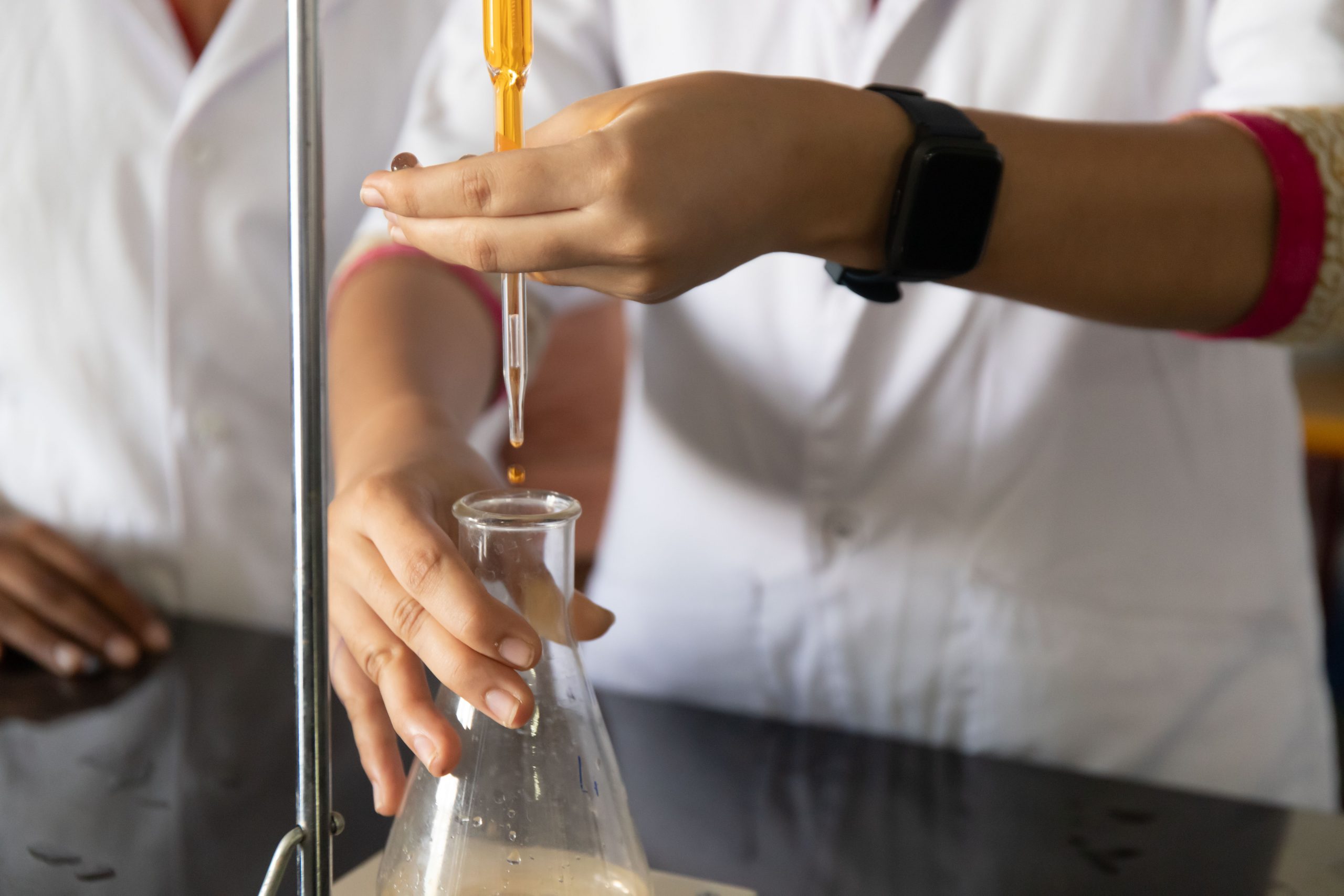
To be a centre of excellence of international repute in education and research in the field of chemistry and other related interdisciplinary sciences.


To promote the advancement of science and technology in the broadest in chemistry in all of its branches and other related interdisciplinary areas through quality education, research and service missions that produce technically competent, socially committed technocrats and scientists.
Welcome to the Department of Chemistry, Kalasalingam University, a vibrant mix of faculties, researchers and students. Since its inception in 1984, the excellence of Department of Chemistry – an oldest one of Kalasalingam University, in each and every aspect has played an imperative role in the University. The Department offers B.Sc., M.Sc., M.Phil. and Ph.D. programmes in Chemistry, and also offers diverse courses to undergraduate programmes of other disciplines.
The faculties of the Department are highly competent, intellectual and devoted. The faculties are well veterans in diverse fields and trained from Japan, UK, France, Malaysia, South Korea, and Taiwan etc. They are not only involved in teaching but also in advanced research. The Department has well equipped research laboratories, internet and library facilities which lead to pour innovative ideas to the students.
Since the Department has dynamic research programmes in numerous areas, the students in the Master of Science degree itself have the opportunity to perform cutting edge research in the thrust areas of Organic, Inorganic, Physical and Analytical Chemistry under the potential supervision of the vibrant faculty of the department.
Having the significance of the competitive examinations, the today’s nucleus in higher education, such as Graduate Aptitude Test in Engineering (GATE), National Eligibility Test (CSIR-UGC NET), State Eligibility Test (SET) etc. in mind, the curriculum and syllabus for M.Sc. programme are designed with specialized subjects of current interests.
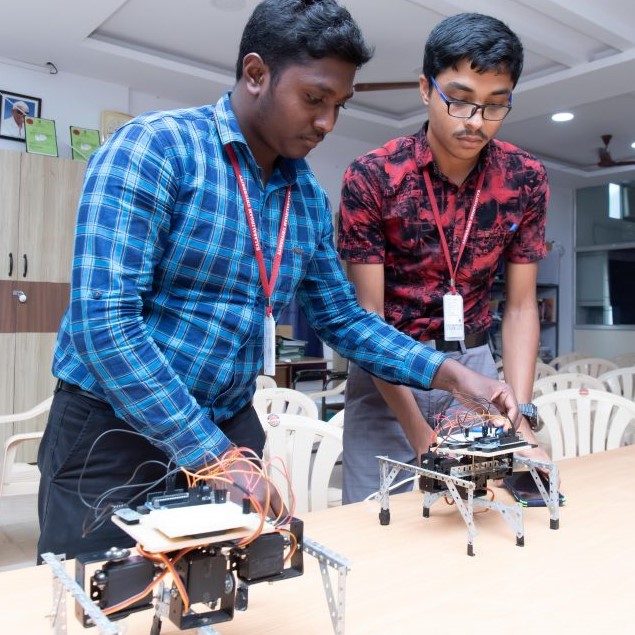
Thermodynamics Lab
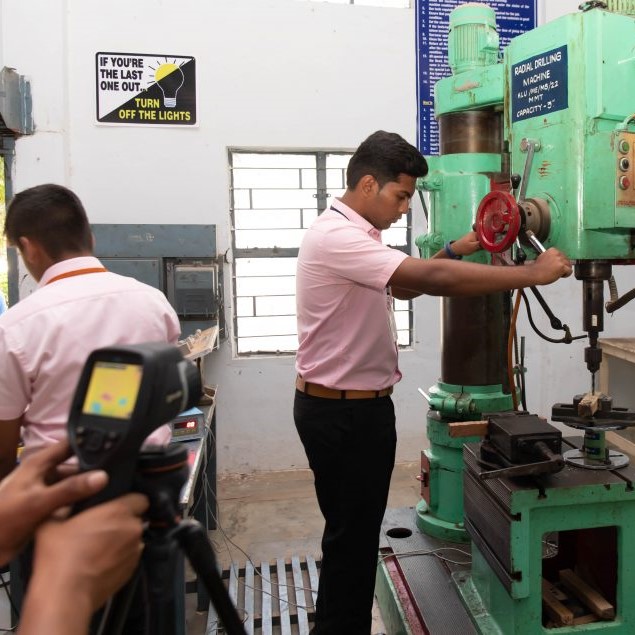
Materials Lab
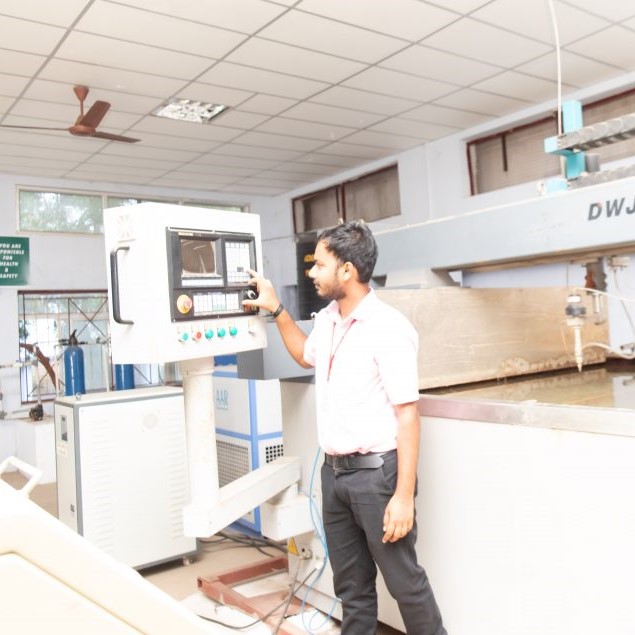
Labs
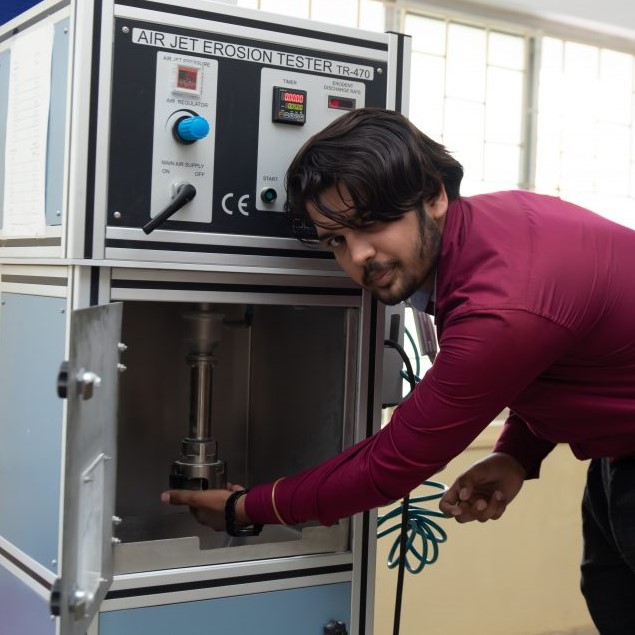
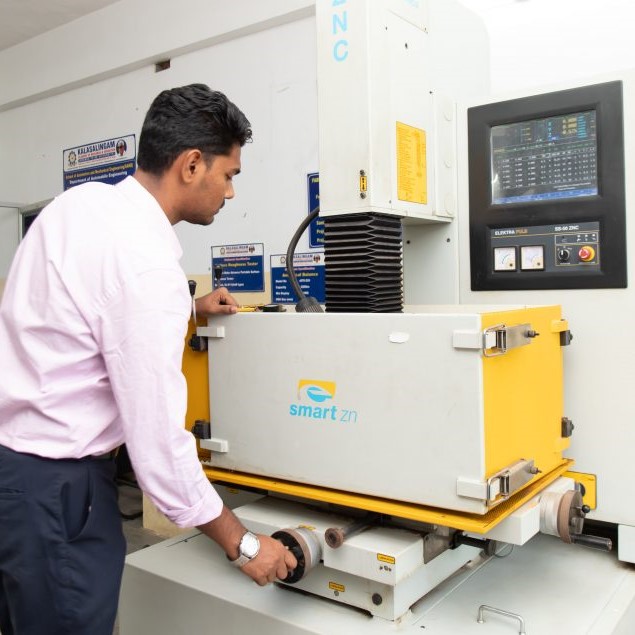
Labs
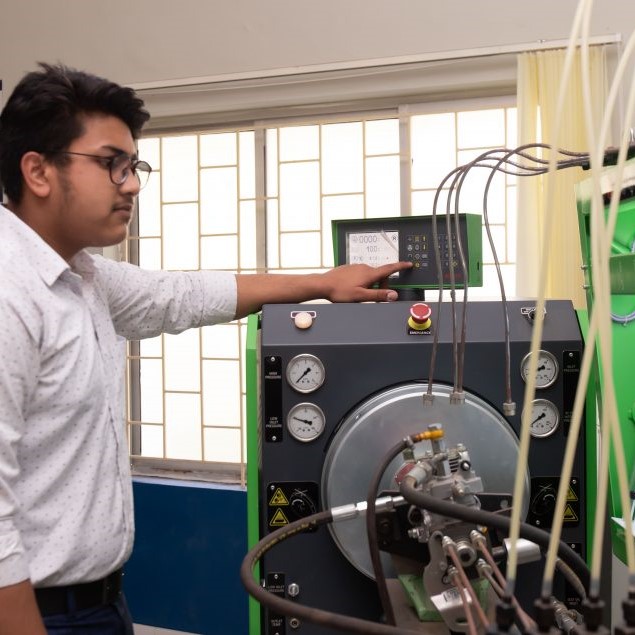
Labs
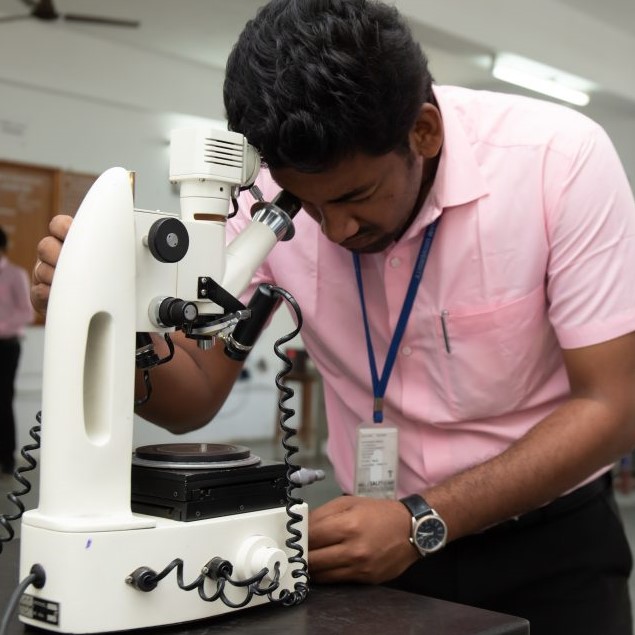
Labs
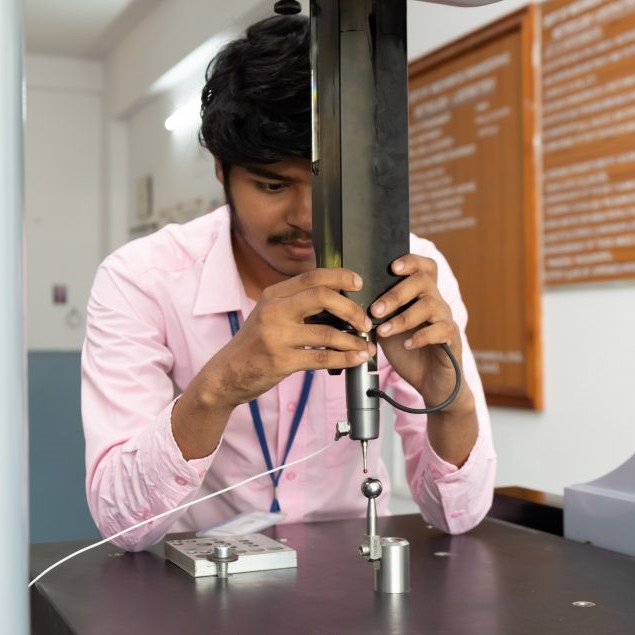
Labs
PO1 – The firm foundation in chemical principles and higher level of understanding in each of the chemistry sub-disciplines such as organic, inorganic, physical, and analytical as well as fundamental principles of biotechnology, mathematics and physics have been developed.
PO2 – Developing the working knowledge of chemical instrumentation and laboratory techniques and be able to use of skills to design and conduct independent work.
PO3 – An understanding of current ethical issues in chemistry and be able to apply ethical principles in industries / research laboratories.
PO4 – Familiarity with the applications of computers in chemistry: Modelling and simulation of chemical phenomena.
PO5 – Communicate results of work to chemists and non-chemists, including respect for the tradition of careful citation of prior contributions.
PEO1 –
Expertise in Chemistry:
Will be able to nurture the needs of industries/laboratories related to chemistry including pharmaceutical/analytical chemistry.
PEO2 –
Professional Growth:
Will be able to demonstrate information literacy skills for acquiring knowledge of chemistry, as a chemist/researcher and also as a life-long learner.
PEO3 –
Analytical Skills:
Will be able to communicate effectively the scientific information and research results in written and oral formats, to both professional scientists and to the public.































I take this opportunity to thank my professors and mentors of KARE who showed me the path to reach heights. I graduated from KARE during 2013 with not only academics but also with skills which is very much required by the Industries. Our institution has a wonderful curricula which focuses both on CGPA and Non-CGPA as well, which fired the inherent design skills in me. The quality faculty and the evergreen environment made me to grow further to achieve many laurels in my career.
Er. S. Mohammed Sabiq
Senior Engineer
Renault Nissan Pvt Ltd.
Chennai
2009-2013 batch



